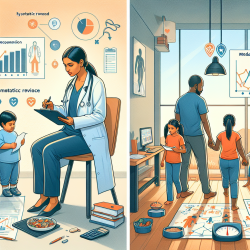Introduction
The landscape of children's behavioral health care is evolving, and with it, the need for a well-trained, interdisciplinary workforce is more critical than ever. A recent study published in the International Journal of Environmental Research and Public Health outlines a model training program designed to address these needs by educating social workers and nurse practitioners. This blog post will explore how practitioners can leverage the outcomes of this research to enhance their skills and improve outcomes for children.
The Importance of Interdisciplinary Training
According to UNICEF, 1 in 7 children globally experience mental health conditions, yet many remain untreated due to systemic barriers such as a lack of trained professionals. In the United States, this gap is particularly pronounced, with only half of the children with behavioral health disorders receiving the necessary services. The IDEATE program, funded by the Health Resources and Services Administration (HRSA), aims to fill this gap by training social workers and nurse practitioners to work collaboratively in integrated behavioral health settings.
Program Outcomes and Practitioner Benefits
The IDEATE program has demonstrated significant improvements in student competencies across various domains, including assessment and diagnosis, care coordination, and evidence-based practice. Practitioners can benefit from these findings by incorporating interdisciplinary approaches into their practice. Key outcomes from the program include:
- Improved confidence in integrated care and collaboration within interdisciplinary teams.
- Enhanced skills in assessment and diagnosis using evidence-based screening tools.
- Increased understanding of culturally diverse populations and the ability to incorporate cultural considerations into treatment planning.
Encouraging Further Research and Development
While the IDEATE program has shown promising results, further research is needed to assess its long-term impact on children's behavioral health outcomes. Practitioners are encouraged to engage in ongoing research to evaluate the effectiveness of interdisciplinary training models and explore innovative approaches to care delivery. Potential areas for future research include:
- Longitudinal studies to track the career trajectories of program graduates and their impact on underserved communities.
- Community-based research to gather feedback from supervisors and patients on the competencies of trained professionals.
- Impact evaluations to determine the program's success in reducing behavioral health inequities.
Conclusion
The IDEATE training program represents a significant step forward in addressing the behavioral health needs of children through interdisciplinary collaboration. However, for this approach to be truly effective, ongoing research and development are essential. Practitioners can play a vital role in this process by applying the program's findings to their practice and contributing to the broader body of research. To read the original research paper, please follow this link: Interdisciplinary Children’s Behavioral Health Workforce Development for Social Work and Nursing.










